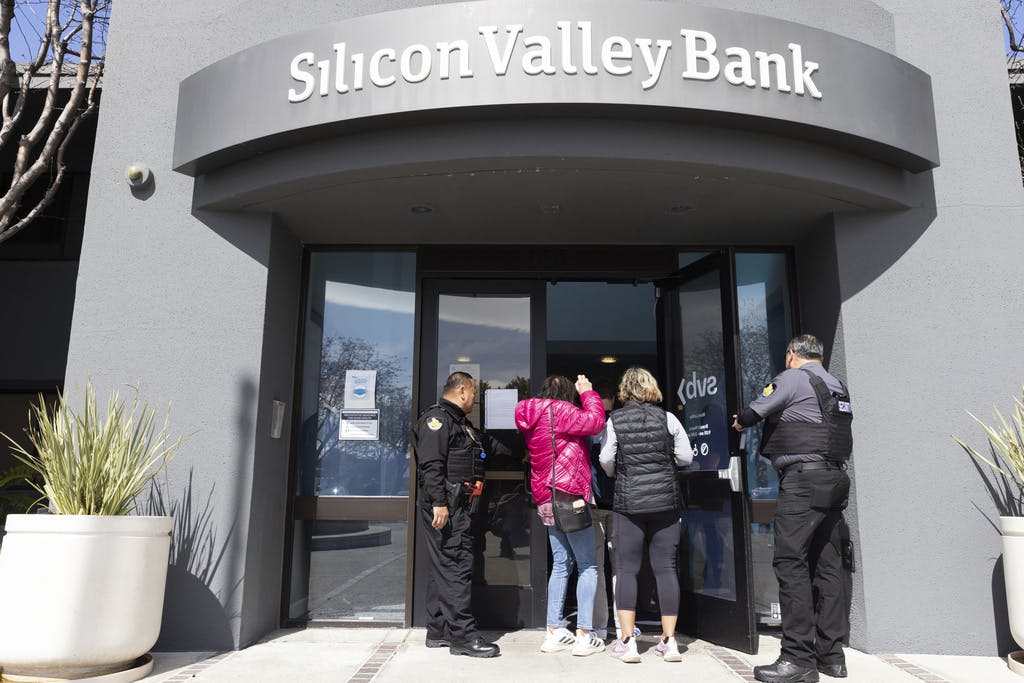Democrats’ New Bank Regulations Will Hurt Small Businesses and Middle-Class Borrowers the Most
Forcing banks to hold more money in reserve will choke off lending to small businesses, homebuyers, and consumers who need loans.

The rapid succession of bank failures last spring clearly spooked federal regulators at the FDIC, the Federal Reserve Board, and bank depositors. The bad decision-making at Silicon Valley Bank, Signature Bank and First Republic Bank caused the regulators to implement emergency life preserver measures to banks and conjured up memories of the 2008 financial crisis.
As the saying goes in Washington, though, a crisis is always a terrible thing to waste, and so we are seeing a reflexive response for more government intervention. No surprise that Senate Democrats immediately pounced into action, calling on federal regulators to add another layer of rules including a complex increase in capital requirements on the American banking system.
Reacting quickly, the Federal Reserve, with the Office of the Comptroller of the Currency and the FDIC, released a joint proposal for the American implementation of the “Basel III regulatory framework.” These are complex rules, but in a nutshell, these rules would increase the amount of money that banks hold in reserve by 25 percent.
Sorry, this WON’T stop occasional bank failures of the hundreds of banks in America. What it will do is choke off lending to small businesses, homebuyers, and consumers who need loans.
The theory behind higher capital requirements is that banks will have more money in reserve to offset the losses from loans that go sour. Bank reserve requirements are a good safety precaution for sure.
We don’t want banks to take on too much risk and then rush to a taxpayer safety net every time they are in trouble. Yet many well-respected government and private studies have found that American banks as a group are NOT undercapitalized, nor were the banks that failed.
Those banks simply made a series of bad investment/lending decisions. Ironically, some of the bad decisions, such as holding on to “safe” low-interest-paying Treasury bonds, which then lost market value when the Fed finally begin raising interest rates, were a direct result of federal regulations.
The FDIC and the Fed are authorized to maintain the health and safety of America’s banks. Their job is to avoid 1930s-style bank runs that could do great damage to our financial system.
Here’s the problem: These new rules would punish banks that are financially sound and shrink the available pool of loans available to homebuyers, small businesses and lower-income families. Less lending to qualified borrowers would mean less economic growth and less financial stability.
A forthcoming Committee to Unleash Prosperity study co-authored by the former president of the World Bank, David Malpass, and myself finds several negative — unintended — consequences of these rules based on the best research findings:
First, they will reduce the available pool of capital by an estimated $100 billion to $150 billion a year.
Second, the reduction in lending will reduce economic activity and thus shrink annual GDP by as much as 0.6 percent.
Third, because foreign banks are not subject to these regulations, American banks will lose competitiveness to foreign banks.
Fourth, and most importantly, it’s the little guy that gets squeezed out of the lending market. Small businesses and lower-income families are most likely to be the ones whose loans are rejected as a result of these new rules.
It’s simple: Lending is the oxygen supply that keeps our economy vibrant and competitive. Cutting it off, as the Basel rules are proposing, won’t make our economy safer, but will put it at greater risk.
Creators.com

